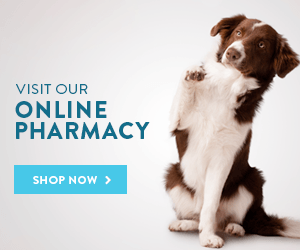Learn More About Your Pet's Flea Control Products
The 2 most important rules to follow when using a flea control product for your pets are:
- Read the ingredients before you buy
- Use the product
as directed only

Diversion Occurs When Products Are Sold in Unauthorized Places
When a product is sold by an unauthorized vendor, the manufacturer of that product will not back any WARRANTIES
and / or GUARANTEES
they otherwise would support had the product been purchased from an authorized seller.
That being said, if your pet experiences a negative reaction to a product, all of the expenses that come with treatment will fall on you. Not to mention the fact that your pet is immediately put at a higher risk (being that you have no guarantee that your product is what they say it is).
Products That Pose a Threat to Your Pets
The 2 most common culprits are Hartz and Sergeant's brands. Always be sure to read the ingredients of any new product you apply to your pets. After applying, observe your pet for the next 24 hours.

All Flea Control is Not the Same
It's a common misconception that "all flea controls are the same." When in fact, they are very far from it.
Don't buy your pet's flea control just because the name sounds good or because the kind associate at the department store recommended it.
Read the Ingredients Carefully When You Buy Over-the-Counter Flea Controls
Some of the most toxic ingredients found in common department store flea controls are Pyrethrin, Permethrin and Pyrethroids. These are all different versions of an insecticide of the Pyrethroid class (some synthetic).
Many over-the-counter flea controls you find in stores have very high levels of Permethrin in them.
That being said, if they are not used properly, Permethrin toxicity can be fatal, especially in cats and smaller dogs.
What Symptoms Should I Look For?
The most common signs are tremors, drooling, lack of appetite, vomiting, diarrhea, in-coordination or disorientation, difficulty in breathing and seizures.
An untreated reaction can even be fatal. If you see any of these symptoms, call your vet immediately!





